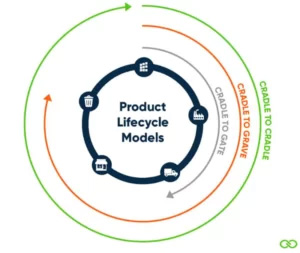Why every person, company and state needs to understand carbon emissions
By now, most of us realise that climate change presents an existential challenge to life as we know it. It is a tragedy of the commons: in such situations, individuals, corporates and states pursue their self interest in a way that eventually depletes a shared resource. Multiple nations may overfish the North Atlantic Cod Fisheries until eventually, controls are put in place, or worse, no cod are left. Climate change however, has an altogether more pervasive and profound influence on us. If we allow it to continue, the problem won’t be that we caught all the cod – but that the cod will become extinct as water temperatures rise too quickly for their species to survive.
The Problem with Corporates
States – though some are laggards, are starting to get their act together. Encouragingly in Ireland, the recent cross-party committee on climate change has highlighted the paths by which Ireland can meet its commitments to the world. Individuals are also increasingly informed about the impact of their choices as consumers and are starting to act accordingly. The weak link here is the corporate group. Some corporates are required to participate in mandatory schemes. These schemes (like the EU ETS), sets emissions limits and requires independently verified annual emissions reports. Companies in the ETS are compelled to act in a transparent manner and over time, do reduce their emissions. However, the vast majority of companies are not in such schemes – but are left to their own voluntary devices. Here is where the problem begins: where self-interest does not align with the common interest – the common interest loses. The world has sleep walked through this pattern for 50 years, it is long past time to wake up.
Parts of the auto industry have already demonstrated the problem. Some players have misled the world (either in error or deliberately) about the true emissions of certain cars. Consumers have acted on these statements in good faith – only to find their trust betrayed. In Ireland we regularly see statements from companies claiming that “we are the most efficient/sustainable…company in our industry”. Or “we are already halfway to our 2030 CO2 reduction targets”. On closer inspection, this latter claim is often based on a procurement decision to switch to buying electricity from renewable sources. This is the emissions equivalent of rearranging deck chairs on the Titanic. While it may appear laudable at first glance, it does not reduce emissions one iota. The electricity grid takes power from multiple sources – coal, peat, natural gas, wind, solar, nuclear and others: if I buy the power that came from the renewable part of the grid – it simply means that someone else, got power from the dirty part of the grid. If the climate ship sinks – shouting that you sat in the clean deck chairs will have had no effect.
The answer is not to boast that you buy the renewables – but to increase the share of renewables in the grid. This takes ambition, investment and time. If we as consumers reward opportunistic and self-serving messaging (Greenwash) we become part of the problem. To protect the future, we need to hear about emissions reduction from the scientists and engineers, not the marketers.
No single entity can achieve carbon neutrality: all economic activity produces emissions. Nature’s answer to this is to provide carbon sinks – things that consume CO2. The problem is the man-made emissions of CO2 greatly exceed the natural sinks. If a company wishes to be carbon neutral, it must start by measuring its own impact or “carbon footprint. This in turn must be measured in a verifiable way. Without objective verifiable standards, the world simply ends up with Greenwash, not progress. In Greenhouse gas accounting, the only international standard is the ISO 14064 family of standards which was written by the Canadian Standards Association – CSA). The standards cover:
- Quantification (how to count your carbon footprint)
- Emissions Reduction Projects (how to reduce your footprint)
- Project Validation and Verification (how to ensure projects and emission reports are real/accurate)
Once the footprint is quantified, a company can then act towards becoming carbon neutral. It can reduce and/or offset its own carbon footprint. In-house emissions reduction opportunities should become apparent post Quantification – as all emission sources are now identified and quantified. Offsetting is where a company purchases the emissions reduction created by another company to offset its own impact. The process, broadly works like this:
- Company A has annual emissions of 500 tonnes of CO2e:
- Company B may plant a forest that consumes 500 tonnes of CO2e.
- Company B registers its project under the Clean Development Mechanism (CDM). To be approved the project must be independently validated.
- A voluntary carbon market can then issue carbon credits each year, for each tonne of CO2e the forest consumes. These are a tradeable commodity and can be sold. The seller gets funding for the project: the buyer, an offset for their emissions.
- The forest owner must quantify and have independently verified how much CO2 the forest consumes each year, to be awarded the credits.
- If the carbon market is satisfied with the continuing efficacy of the forest, more credits are issued – each year for up to 10 years.
Many carbon markets operate around the world – with varying degrees of credibility. The more credible the project, the higher the credit price will be. Extending our example above – a low credibility market (with low standards of Validation and Verification) may issue credits for the Company B Forest project that one can buy for 5 cents each – allowing company A to claim carbon neutrality for $25 per annum. When you go looking for the forest however you may find it has been cut down for timber or land use and is no longer offsetting emissions. In this case, the offset is dubious or non-existent. The more expensive credits are verified by independent 3rd party reputable companies. The costs are higher for the company, but the offset is real and the planet actually does benefit.
Back to the tragedy of the commons: if everyone is more driven by self-interest than responsibility – they buy the cheap credits – and use it as a marketing tool. The responsible companies do the opposite – they buy the verified credits and share the science of their actions to any and all. The average consumer may be fooled -but the planet won’t be
It is often stated that that small countries cannot make a difference on climate change and that responsibility should be carried by the large nations. It is also implicit in published research that there may be a technical solution to climate change. Both are false. There is no silver bullet and there is no solution if we choose to avoid responsibility. If we are to survive, our behaviours must change. It is as simple as that.
If behavioural change is to work, everyone needs to be on board. Also as we know, behavioural change has its own dynamics: better that each country sets an example to inspire others – than detracts from that momentum by doing nothing. There is also a perception that many countries are doing nothing on climate change. Our experience in working in the space suggests otherwise: while some countries are at an earlier stage of change – they are active. In many cases, this is because they are feeling the effects of climate change already. Singapore and South Africa have announced new carbon taxes and Nigeria has undertaken to establish a carbon footprint for the country – an enormous undertaking – adopting the approach “you cannot manage what you don’t measure”. Those measures are just the start of how their societies have to adapt. They not only harness the efforts of their own constituents, but remind all of us that there is no plan B. After all, there is no Planet B.
A few conclusions:
- Climate change is your problem – not someone else’s.
- Greenhouse Gas/Carbon accounting is complex.
- This complexity can facilitate self-serving “Greenwash” over tangible solutions. The consumer needs to be educated and sceptical.
- Corporate actions need to go well beyond sustainability marketing, if we are to see a difference. Consumers will increasingly hold companies to a verifiable standards of behaviour.
- If you hear statements about carbon credentials –look for independent verification. Ask who verified the project – or to see the emission report. A company’s response to that request will tell a lot.
- If companies do not do that, the only option is more stringent legislation, ie mandatory emissions reporting for all companies. In the UK, large listed firms must disclose their emissions annually: it is no coincidence that UK emissions are now 40% below the 1990 levels – in absolute terms. This despite substantial economic growth in that period. Ireland’s absolute emissions are now 9.6% above the 1990 levels!
- Advice to everyone – get informed, act, make a difference.





